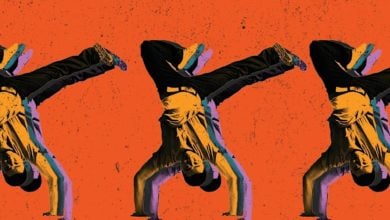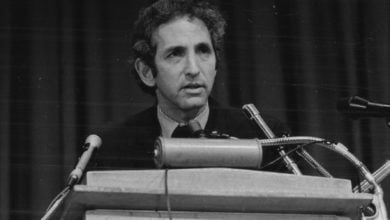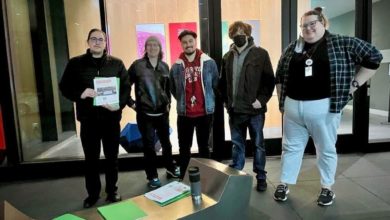Floyd Red Crow Westerman, Native leader, actor and musician, died Dec. 13 in a Los Angeles hospital of complications from leukemia at age 71. A funeral procession of 100 vehicles accompanying him to his burial place in South Dakota and the tributes by friends and family were touching reminders of his legacy of activism and artistic integrity.
Westerman was born in South Dakota of the Sisseton-Wahpeton Oyate on Lake Traverse reservation. The Sisseton-
|
Westerman’s experiences as a youth shaped his commitment to social justice and to setting the historical record straight about Native people’s struggles against the U.S. government genocidal policies. In songs, film projects and his involvement in many actions on behalf of Indigenous peoples, Westerman earned the title of Cultural Ambassador of the American Indian Movement and the International Indian Treaty Council.
When he was 10-years-old, he was sent to the Wahpeton boarding school, the same school that AIM founder Dennis Banks was also forced to attend. Indian boarding schools were intended to expunge Native children’s culture, language and family and tribal ties.
Westerman and Banks were of the generation of Native men and women who came into political activism in the 1960s, partly influenced by the great civil rights movement of African American people, and by their own experience of oppression. The sweeping struggle for civil rights and sovereignty among the oppressed nationalities in the United States led to the formation of organizations like the Black Panther Party, the American Indian Movement, the Puerto Rican Young Lords Party, the Brown Berets and others.
A milestone in the Native struggle was the AIM defense of Wounded Knee on the Pine Ridge Reservation in South Dakota in 1973 when U.S. armed forces of the FBI, the Bureau of Indian Affairs and the U.S. military surrounded the town in a 71-day siege. With the siege on, Westerman was among those who slipped in through the military encirclement to join the takeover.
One of his biggest contributions to the movement was the revival of Indigenous people’s culture and history, which is buried by U.S. official history that seeks to justify genocidal policies against Native people.
Although he was known to the wider U.S. public as an actor, primarily for a leading role in the Hollywood film “Dances with Wolves,” Westerman was first a singer and songwriter. He had a beautiful, deep and resonant voice, and a guitar-playing style rooted in the country and folk genres.
He composed music with themes of pride and vindication of Native culture and in defense of nature. Among his record albums were “Custer Died for Your Sins,” “The Land is Your Mother,” and in 2006 he recorded an album in tribute to Johnny Cash. For the Cash tribute album, he won Best Country Recording honors at the Native American Music Awards last year.
Westerman was the recipient of many honors and awards, including the Living Legend Award at the Native American Music Awards in 2002 and the Award for Generosity by the Americans for Indian Opportunity.
Westerman performed at many benefits for social causes including rallies for political prisoner Leonard Peltier. He often participated in the annual “Thanksgiving” sunrise ceremonies at Alcatraz Island in San Francisco. In 2000, he performed in San Francisco for the send-off of the Native cultural delegation to Cuba that was led by Dennis Banks.
In October 2007, Westerman and Banks came to San Francisco for Indigenous Peoples Day. There, he gave a stirring talk about the need to support Venezuelan president Hugo Chávez, the Bolivarian revolution and Bolivia’s Evo Morales.
One of his treasured projects was a documentary series called “Exterminate Them: America’s War on Indian Nations.” The first part, “California Story,” details the extermination of many Native nations in that state with the onset of the 1848 Gold Rush. His family has pledged to see the project completed.
Along with the thousands of people who knew Westerman over the years, I have very fond memories of Floyd Red Crow. He loved a good laugh and, more than anything, he truly came alive when he picked up his guitar to sing. He was a man of great dignity with a big heart and generous spirit for all people. He in turn was loved and respected by all who knew him.
His family includes his wife, Rosie, three daughters and a son.






